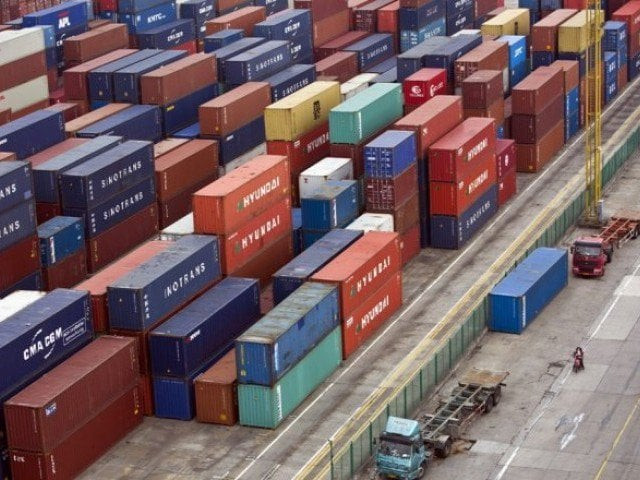Call for reforms: Economic growth slows down in July-December, says IPR
Focus mainly on balance of payments and fiscal deficit, other areas neglected

PHOTO: REUTERS
The report asserted that the country’s administration was mainly focusing on balance of payments and fiscal deficit, neglecting other equally important areas.
According to the IPR, the country’s fiscal deficit was under control as a substantial provincial surplus restricted the fiscal gap at 1.7% for the period July-December 2015, which was well within the target for the year.
Additionally, revenue collection and expenditures were largely on track. The other positive development included the drop in inflation rate for the period July 2015 to February 2016, as the year-on-year Consumer Price Index fell.
Low growth
However, the economy’s stunted growth levels continued to persist. Compared to the annual target of 6%, large-scale manufacturing grew 3.9% year-on-year from July-December 2015.
Looking at the agriculture sector, the production of two major crops - cotton and rice - fell. This year, cotton lost about a third of its production compared to the previous year. Sugarcane output may increase from last year’s lows, but would be short of the 68-million-ton target.
Subsequently, the agriculture sector is unlikely to meet the growth target of 3.9% for the year. Investment also ran into snags and may not meet the goal set by the government, as there may be cuts in development spending. Credit to the private sector and imports of machinery increased, however, it remained to be seen if these would be sufficient to give a boost to investment.
The report added power supply, which grew modestly during July-November, continued to be a constraint on economic activity. Overall, the IPR subscribed to the IMF’s cautious growth estimate of 4.5% for 2015-16 against the government’s target of 5.5%.
The report warned that balance of payments posed a special challenge. With decline in exports and low foreign direct investment, the economy relied on external debt for far too long and at high cost. Consequently, the burden of debt repayment would increase significantly in coming years.
“Exports have fallen by an alarming 15% during the six months under review,” it said. “Shipments of textile, our main export product, alone fell 9% and this is partially due to the slow growth in world trade but the blame can also be put on the currency value and the fundamental issues of competitiveness.”
Solution
The report emphasised that while it focused on stability, the government must concurrently begin structural reforms of the economy. This is critical if the country is to break out of the low growth trap and continue dependence on external savings. It pointed out that for too long the policymakers had relied only on management of macroeconomic indicators. It is time for strong action on reforms.
The IPR suggested that even within stabilisation, the government must aim for a quantum growth in tax revenues and reengineer the tax policy and administration.
Additionally, the government must take steps to boost business activity. Revival of the industry and agriculture is important and access to project finance for the private sector is the key. The report referred to governance, labour productivity and education as barriers to growth. “There is yet no top-level discussion on improving these fundamentals of development.”
Finally, the report found that too much hope was placed on the China-Pakistan Economic Corridor (CPEC) for economic revival. While CPEC would stimulate growth, the economy would not have sustained development without fundamental reforms.
Published in The Express Tribune, March 15th, 2016.
Like Business on Facebook, follow @TribuneBiz on Twitter to stay informed and join in the conversation.



















COMMENTS
Comments are moderated and generally will be posted if they are on-topic and not abusive.
For more information, please see our Comments FAQ